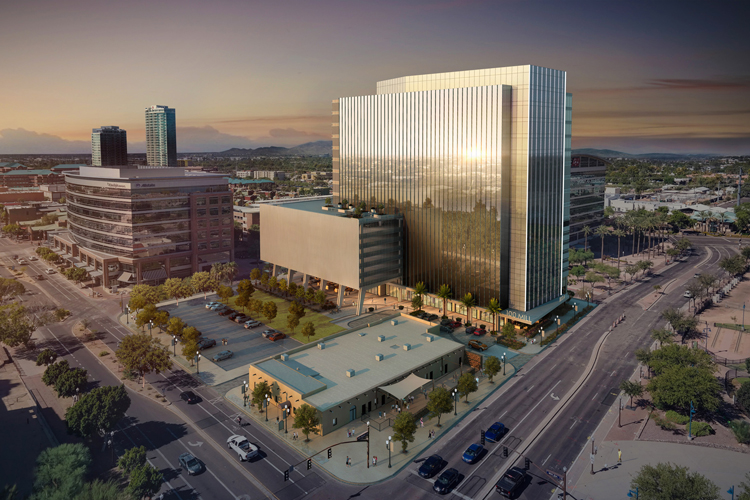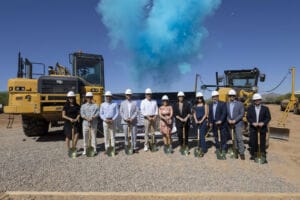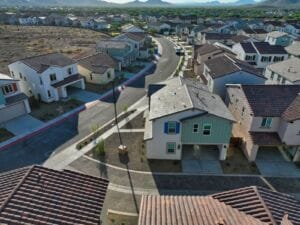The Phoenix office market experienced a record-breaking previous year in 2019 that featured significant relocations and expansions to the region, and further continued to hold strong in the first quarter, according to a report from Kidder Mathews. However, the quarter ended with an unprecedented disruption to the industry in the form of COVID-19. As such, the trajectory of the local office market faces uncertainty as the extent and severity of the worldwide pandemic is unknown and continues to evolve at a rapid pace.
Prior to the recent outbreak of COVID-19, the Phoenix office market was benefiting from robust demand, fueled by a diverse economy, population growth and a growing talented labor pool. However, the nationwide and local economy took a major hit due to the impacts of the novel coronavirus. Although the long-term impact on the economy and market is uncertain, much of the region braces for what is expected to be a very unclear and challenging year ahead. In terms of the immediate effects, the office market has been impacted heavily as a vast majority of workers have transitioned to work from home due to the statewide shelter-in-place order that took place at the end of March. While it is too soon to tell, this could mean a reevaluation to office size requirements and new leases may slow over the next year as companies assess future cost savings from reducing their office footprint.
The impacts of COVID-19 were not yet reflected in the first quarter employment data, as job growth was up YOY in the most recent February 2020 report, with 69,800 jobs added YOY in the Phoenix metro.
According to the Arizona Labor of Statistics Office of Economic Opportunity, Phoenix metro’s unemployment rate dropped 10 basis points to 3.9% month-over-month and below the year-ago estimate of 4.2%. However, in more recent findings from the U.S. Department of Labor, unemployment claims throughout the country have skyrocketed to unprecedented numbers of over 15 million over the last three weeks due to the effects of COVID-19. With multiple states enforcing stay-at-home orders, Arizona included, businesses in almost every sector have been widely impacted financially, leading to difficult decisions to cut costs and lay off employees. As of April 4th, Arizona filed more than 129,000 unemployment claims. While the short-term repercussions from COVID-19 have been experienced nationwide both economically and socially, it is too soon to tell to what degree and what the long term impacts will be for the office real estate market.
The county’s vacancy and availability rate for the Phoenix office market increased slightly in the first quarter to 13.1% and 16.4%, respectively, after coming off a record low for both metrics at the end of 2019. Vacancies are currently at the cyclical low – a factor contributing to the recent vacancy compression and robust rent growth has previously been due to a relative lack of new spec supply in the development pipeline, however speculative construction for the office market is starting to ramp up in Phoenix. The first quarter posted almost 3.5M square feet of construction volume and of that, approximately 2.5M is slated to deliver by year’s end. The increase in development is a much-needed relief to offset the limited availability, as demand has consistently outpaced new supply. Although construction was deemed an “essential” business during this time, the stability of the industry has been in question as the supply chain disruption may cause delay to the completion of the current projects underway. Additionally, with the surge in construction paired with the uncertainty about the market, vacancies and availabilities may continue to rise, as leasing activity is anticipated to slow. Net absorption in the first quarter posted negative for the first time in over 5 years at 42,985 SF of negative net absorption, but this was accounted for before the outbreak of COVID-19 though the market may experience limited net absorption depending on the length and severity of the COVID-19 impacts.
Average asking rental rates in the first quarter for office properties county-wide soared to $27.60 per square foot on a full-service basis, a number the market has never previously experienced. Accordingly, both Class A and Class B space reached a record high at $32.28 and $24.84 PSF. Despite consistent rent appreciation and gains that have consistently outpaced U.S. growth over the past several years, Phoenix maintains its position as an affordable office market when compared to the average office rents in the nearby West Coast markets, which are roughly 50% higher than that of Phoenix. Although many are speculating that rent growth may slow in the coming quarters, it is too early to tell if there will be a market shift in rates. However, the market could experience some downward pressure in the next few quarters as more sublease space is expected to come on market and compete with direct space.
Before the effects of the worldwide pandemic, sustainable economic drivers and a well-balanced supply and demand pipeline attracted investors to buy into the Phoenix office market. The average sale price for Phoenix office assets peaked at a record high at the end of 2019 at a notable $230.79 PSF but dipped to $177.73 in the first quarter. Transaction volume also decreased to approximately 1.5M SF. Currently, many investors are hesitant to make any immediate decisions as the extent and severity of the pandemic is unknown and continues to change daily. Many of the players are in a “wait-and-see” mentality because of the fast-moving and fluid environment and heightened uncertainty will likely delay new sales until there is a better understanding of what office demand will be until the pandemic subsides.
Notable Lease Transactions:
• Amazon | 100 S Mill Ave | Tempe | 93,000 SF
• Zip Recruiter | 1039 E Raymon St | Airport Area | 89,889 SF
• District Medical Group | 3141 N 3rd Ave | Midtown | 56,544 SF
Notable Sale Transactions:
• JLL Income Property Trust, Inc.| 1501 & 1620 W Fountainhead Pky | Tempe | 300,193 s.f. | $61.5M or $205/s.f.
• Patricia & David Moore | Canyon Village |Scottsdale Airpark | 93,840 s.f. | $22M or $234/s.f.
• Philip & Donna Landry Trust | Rancho Santa Fe Center | West 1-10 | 73,307 s.f. | $17.8M or $243/s.f.




